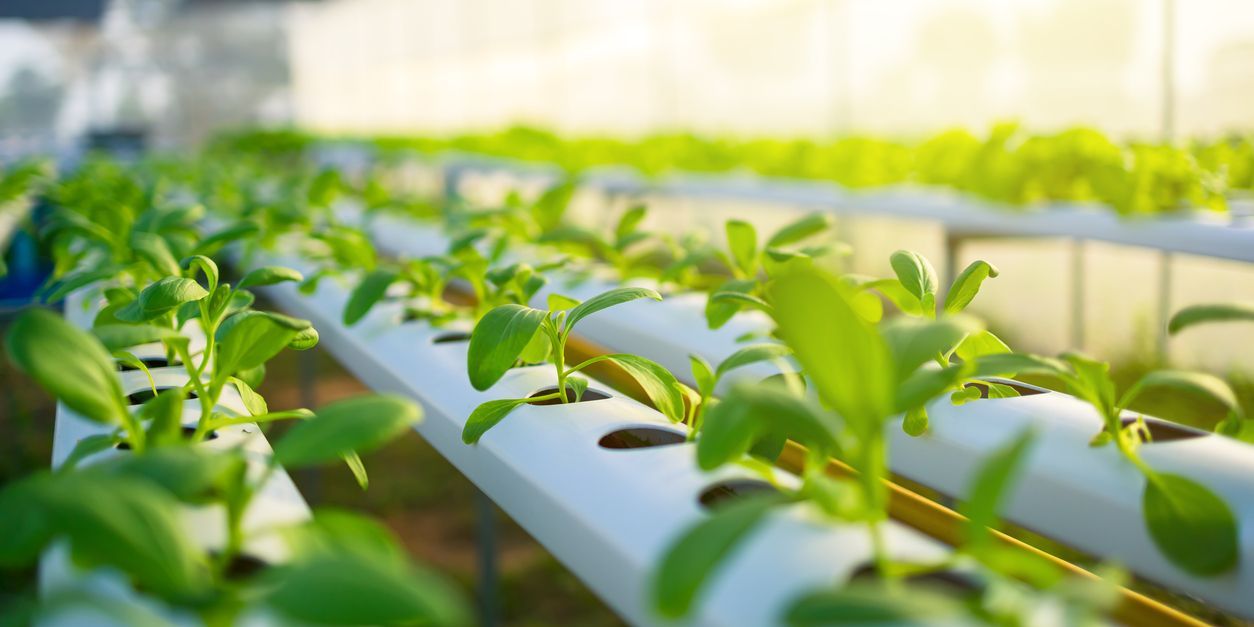What is a Hydroponic Farmer?
A hydroponic farmer grows plants using a soil-free method called hydroponics, where plants thrive in water that's enriched with nutrients. This approach is usually done in controlled environments like greenhouses or indoor farms, which helps the plants grow faster and often produce more than traditional farming methods.
Hydroponic farming is great for places where good farmland is hard to find or the climate isn't ideal for growing. It also makes it easier to grow fresh, local food near cities, cutting down on long transportation journeys and reducing carbon emissions.
What does a Hydroponic Farmer do?

Duties and Responsibilities
Hydroponic farmers have a variety of duties that help ensure healthy plant growth and efficient operation of their farms. Here are some of their key responsibilities:
- Setting Up and Maintaining Systems: Hydroponic farmers build and maintain the systems that keep their farms running smoothly. This includes setting up water pumps, nutrient delivery lines, grow lights, and support structures for plants. Regular maintenance ensures everything stays in top shape, minimizing the risk of system failures.
- Monitoring Plant Health: They keep a close eye on their plants every day, watching for signs of pests, diseases, or nutrient deficiencies. By catching problems early, farmers can make quick adjustments to keep plants thriving and growing strong.
- Mixing Nutrient Solutions: Since the plants grow without soil, hydroponic farmers mix special nutrient-rich solutions that deliver all the essential minerals plants need. Getting the right balance is key to healthy growth, and farmers often tweak the formulas based on each plant’s stage of development.
- Managing Environmental Conditions: Hydroponic farms rely on carefully controlled environments. Farmers adjust things like temperature, humidity, and light levels to create the perfect growing conditions for each crop, no matter the season or weather outside.
- Harvesting and Packaging Crops: When plants are fully grown, farmers harvest them with care to avoid damage. They then clean, sort, and package the produce so it’s fresh, attractive, and ready for markets, restaurants, or local customers.
- Record Keeping: Keeping good records helps farmers track what works and what doesn’t. They document plant growth, nutrient usage, maintenance tasks, and harvest yields to improve future crop cycles and ensure consistency.
- Research and Innovation: Hydroponic farming is a rapidly evolving field, so farmers stay curious and keep learning. They explore new technologies, growing methods, and plant varieties to boost productivity, reduce waste, and make their farms more sustainable.
Different Types of Hydroponic Farmers
The different types of hydroponic farmers are often distinguished by the specific hydroponic systems and management techniques they use or the crops they specialize in:
- Nutrient Film Technique (NFT) Farmers focus on growing plants in a thin film of nutrient solution flowing through channels.
- Deep Water Culture (DWC) Farmers grow plants with their roots suspended directly in oxygenated nutrient-rich water.
- Aeroponics Farmers cultivate plants by misting their roots with nutrient solutions in air.
- Aquaponics Farmers combine aquaculture (raising aquatic animals such as fish, crayfish, snails, prawns in tanks) with hydroponics, whereby the nutrient-rich aquaculture water is fed to hydroponically grown plants.
- Ebb and Flow (Flood and Drain) Farmers periodically flood the growing medium with nutrient solution and then drain it.
- Vertical Hydroponic Farmers specialize in stacking growing systems vertically to maximize space, often used in urban farming.
- Hydroponic Crop Specialists concentrate on certain crops like leafy greens, herbs, tomatoes, strawberries, or microgreens.
- Sustainability-Focused Hydroponic Farmers specialize in eco-friendly practices that maximize resource efficiency, water recycling, and organic nutrient sources.
- R&D-Focused Hydroponic Farmers are research and development specialists, working on improving hydroponic technologies, nutrient formulas, or plant varieties suited for hydroponic growth.
Hydroponic farmers have distinct personalities. Think you might match up? Take the free career test to find out if hydroponic farmer is one of your top career matches. Take the free test now Learn more about the career test
What is the workplace of a Hydroponic Farmer like?
Hydroponic farmers can be employed by a variety of organizations and businesses, including:
- Commercial Hydroponic Farms that grow produce for local markets, grocery stores, or restaurants
- Greenhouse Operations specializing in controlled-environment agriculture
- Urban Farming Companies that focus on vertical farming or indoor hydroponic systems in cities
- Agricultural Technology Firms developing or managing hydroponic systems and solutions
- Research Institutions and Universities conducting studies on hydroponic methods and plant science
- Food Production Cooperatives or community supported agriculture (CSA) programs using hydroponics
- Agribusinesses and Food Distributors that include hydroponically grown crops in their supply chains
- Aquaponic Farms that combine fish farming with hydroponic plant cultivation
- Government or Non-profit Organizations involved in sustainable agriculture projects or food security programs
- Independent Hydroponic Farmers that run their own farms or small businesses
A hydroponic farmer usually works in clean, carefully controlled environments designed to help plants grow their best. These spaces might be greenhouses, indoor vertical farms, or even warehouses transformed into high-tech growing areas. They’re often filled with equipment like water pumps, nutrient delivery systems, LED grow lights, and climate controls that keep temperature, humidity, and air circulation just right for the plants.
Day-to-day work is a nice mix of hands-on and tech tasks. Farmers might spend part of their day planting new crops, pruning leaves, or harvesting fresh produce. The rest of the time, they’re checking on systems, adjusting environmental settings, and making sure the plants are getting exactly what they need to thrive. It’s a rewarding blend of gardening and technology, all in an indoor setting where the weather is always perfect for growing.
Hydroponic Farmers are also known as:
Controlled Environment Agriculture (CEA) Farmer
Hydroponic Grower